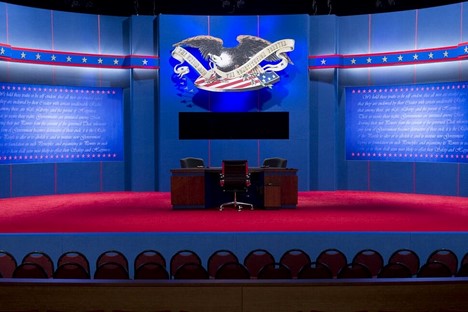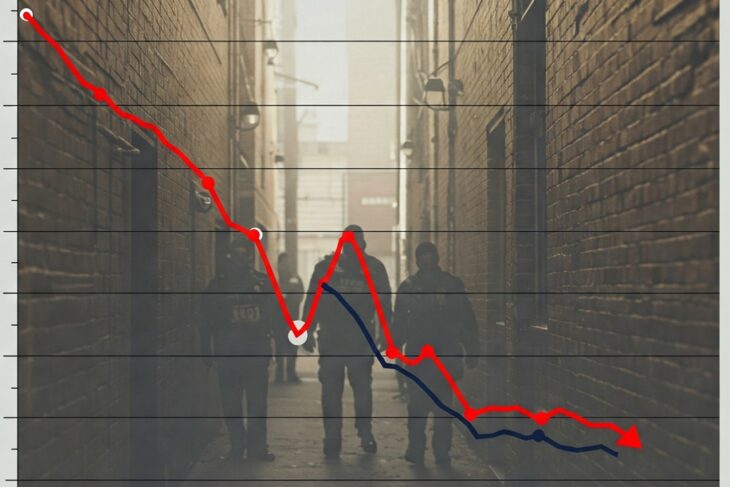
On Wednesday night, August 23, 2023, many Americans gathered around their television sets to witness the first in a series of Republican presidential primary debates towards the party’s nomination for the 2024 campaign. Former President Trump, as it presently stands, is the leading contender, being head and shoulders over his contenders in the public opinion polls. Mr. Trump decided not to participate, despite being bated and shamed into doing so by his peers. And, why should he have? He is not only the frontrunner at the moment, but many of his supporters do not seem to care about what could be considered, by traditional political standards, as detailed, as well reasoned and as pragmatic political platforms. In fact, Mr. Trump’s absence from the debate in question only underscored the lack of interest by many in the GOP for any clear and workable democratic policies, by conservative standards, since as far back as the debates of 2016, if one could really call them debates.
Some in society were led to believe then that they were, in all reality, anything but bonafide political debates. The candidate who won the GOP presidential primary then received high marks for his charismatic appeal, one laced with insults, innuendos, put-downs and with cold, crass, and seedy caricatures of, for examples, minorities, women, Muslims, Mexicans, Africans and undocumented workers. He won, in all actuality, without debating, and with the support of white supremacy groups who Trump, in a presidential debate, when asked to denounce them, instructed them on national television to “Stand back and stand by”. And so, what other dynamics were at play outside of normal political discourse?
The word debate, according to one dictionary, is defined as a formal discussion on a particular topic in a public meeting or legislative assembly, in which opposing arguments are put forward. It also drew a distinction between what is considered an argument and a debate. A debate is formal, deliberate, and executed according to an agreed upon set of rules. Debates use arguments, but an argument itself is informal, usually unplanned, and can get heated. The GOP presidential debates of 2016 saw participants breaking those basic rules. Three notable standouts who were caught up in a melee of accusations and of character assassination were Senator Marco Rubio of Florida, Senator Ted Cruz of Texas, and businessman Mr. Donald Trump of New York.
The main culprit and catalyst of discord on stage was Mr. Trump himself. He broke, practically, every rule in respect to what one should never say or do during a debate. He attacked his fellow debaters. He often generalized and exaggerated. He was rude. He was disrespectful. He often interrupted others. He reeked of sarcasm, and he exuded an air of a “know-it-all”, claiming to be able to accomplish things without substantive arguments. And yet, despite his unstatesmanlike boorishness and his patent demagoguery, he was considered by many in his party to be the winner. How so?
The candidates at the various stages of the 2016 series of debates, generally speaking, had carefully thought out political platforms which revealed what they would have done, adhering to what was regarded as established Republican conservative ideals both in domestic and in foreign policy. In making their positions known, such individuals as governors Mike Pence, Jeb Bush and John Kasich, and also renowned neurosurgeon Dr. Ben Carson, showed themselves to be gentlemen and exemplars of debate. Whether one agreed or disagreed with their positions, one could follow the logic of their arguments. The public had the opportunity to survey and review their positions in order to make well-informed democratic choices. But the candidate who won, as was stated before, was he who often deflected and who obfuscated when probing questions were directed at him by members on the panel of moderators, and by those who stood on the platform with him.
History records, subsequent to those debates and to his presidential inauguration that he did carry out agendas that were consistent with Republican conservatism. He did so even though many doubted and still doubt his Republican pedigree and his commitment to what they considered to be true conservatism. He did so, yet he tainted what many regarded as his great legacy by paying obeisance to autocrats and to demagogues, and by threatening the very foundations of the American republic with an attempted coup d’etat fuelled by right wing political conspiracies and by election denialism. And yet, in the year 2023, the majority of Republicans ignore bonafide policy issues raised in a debate, looking towards the future, and they also ignore alleged crimes by the frontrunner in the race that would have ended the political careers of, practically, any other American president — Republican or Democrat. And so, what of debates, in the strictest sense of the word, as we move towards the general elections of November, 2024? Why debate at all if most are not listening, having made up their minds already?
As Americans, we must now ask ourselves what is the basis of our political debates? Conservative and liberal ideals which, in many respects, do not violate the tenets of American democracy, and which are both well-known contrasting views on the political spectrum, what of them? What of the future? What former President Trump and his surrogates have been touting appears to be a horse of a different colour. But how it looks, how it sounds, how it smells, how it feels, and how it moves is reminiscent of a form of oligarchy, one which ruled slave plantations in the antebellum South, one which stoutly resisted democratic principles, and one where the rights of citizenship were skewed in only one direction, and which fell within the preserve of a few who, coincidentally, happened to be white?
So, again, what of debate in a modern, liberal American democracy and among many having an illiberal political bent? The democracy envisioned by such men as Cicero of Rome and Demosthenes of Greece was based upon exhaustive, upon well-meaning, and upon productive debates. We extoll the virtues of our Western heritage, but what of it when it comes on to the rudiments of good debating?
The spirit behind the construction of the ancient tower of Babel, one of hubris, one of selfishness, one of meanness, one of exploitation, one of confusion, and one of division is still very much with us today. We decry Afro-American history and we cherry pick European history. How does such an approach to history help us as a nation to clearly see and avoid pitfalls going forward?
For those on the stage who embraced and defended the philosophy of Mr. Trump, who spurned the debate, candidates who stated that they would support him as the nominee if he became a convicted felon, why did you even bother to debate? The deck is stacked against you, can’t you see that, and most of you seem eager to use it? And so, whatever was your process of debate all for?



